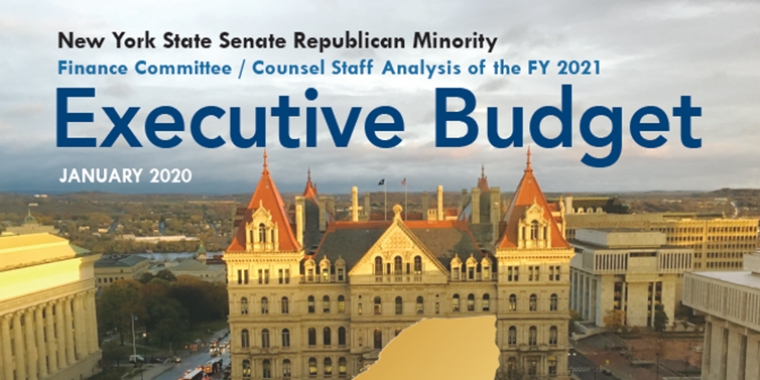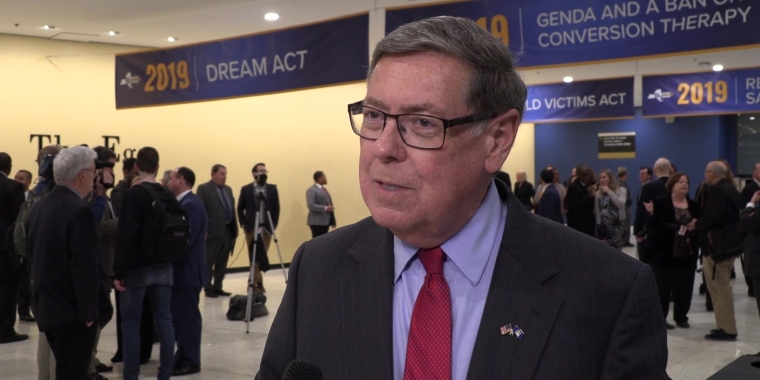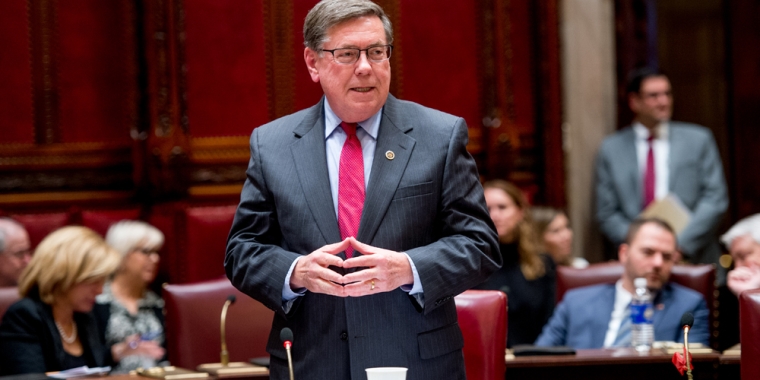
Be Prepared
James L. Seward
September 10, 2009
We just recently passed the anniversary of the terrorist attack on our nation on September 11, 2001 and it is important to continue to learn from the tragic event. Since that fateful date we have made great strides in areas of national security and defense. We have also worked extremely hard at the federal, state and local levels to upgrade our emergency preparedness as we ready ourselves for potential man-made and natural disasters.
Even before the September 11 attack I was deeply supportive of our first responders. Men and women who have dedicated themselves to the protection of others deserve special respect. More often than not, our local emergency care givers are volunteers- spending time away from their families and putting their lives on the line for no pay.
For many years, I have fought to assist these individuals who freely give away so much of themselves. As chairman of the Senate Task Force on Volunteer Emergency Services, I was able to help establish a low interest loan program for the capital needs and equipment purchases of volunteer fire departments and emergency squads. I also won funding increases for the state fire academy to improve training for firefighters. These measures mean safer, better equipped emergency responders, and also help keep costs in line. Special tax credits have also been approved under my sponsorship to give our volunteers a break on their state tax returns.
This year I was able to help fix a state law that will allow emergency services personnel to operate fire trucks and other emergency vehicles without holding commercial drivers’ licenses. This allows first responders with the proper training to drive to and from the scene of an emergency, take part in training exercises and participate in parades and other community events.
While our emergency services workers are extremely important to disaster preparation, everyone can play a role. September is National Preparedness Month and is the perfect time to talk with your family and loved ones about what to do when faced with a disaster situation.
The American Red Cross has a simple three step plan that any family can follow to prepare for any type of disaster, natural or man-made.
Step 1 - Get a kit. The kit should include basic supplies like water, non-perishable food, a flashlight, battery powered radio, first aid kit, tools, personal documents, medications, emergency blankets and maps of the area. If you have young children, pets or other family members with special needs additional supplies may be necessary.
Step 2 - Make a plan. This is critical because in an emergency situation you must act fast. Making sure everyone in the household knows what to do could mean the difference between life and death. To begin you should meet with your family and household members and discuss how to prepare and respond to emergencies. Assign each household member with a responsibility and plan to work together as a team. You should also choose two places to meet, one right outside your home in case of a sudden emergency like a fire, the other outside your neighborhood in case you cannot return home or asked to evacuate. It is also important to plan what to do if you have to evacuate.
Step 3 – Be informed. Learn what disasters or emergencies may occur in your area; for instance, if you live in a flood prone area. Identify how local authorities will notify you during a disaster and how you will get your information, whether through local radio, television or other sources. You should also know the difference between different weather alerts such as watches and warnings and what actions to take in each.
Following these important disaster preparation steps can help make everyone better prepared and ready to face a disaster situation.
Share this Article or Press Release
Newsroom
Go to NewsroomSeward Meets with Veterans
February 25, 2020

Analysis of 2020-21 Governor's Budget Proposal
January 29, 2020

Governor's Budget Plan Falls Short
January 21, 2020

Statement from Senator Seward
January 20, 2020
